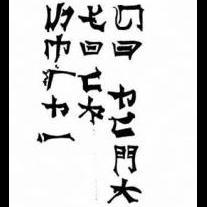Engrish
-
Последна активност
-
- 34 мнения
- 6593 прегледa
-
- 2702 мнения
- 244627 прегледa
-
Месояден хищник или тревопасен е по природа човекът, или епизод от научната дезинформация в новия свят 1 2 3 4 53
От КГ125, in Съвременна и обща проблематика
- 1320 мнения
- 105151 прегледa
-
- 744 мнения
- 19216 прегледa
-
Пилотирана мисия до Марс - водещи американски учени са категорични в научната ѝ полза
От SAlexandrov, in Космически науки
- 11 мнения
- 207 прегледa
-
-
Последно разглеждащи 0 Потребители
- No registered users viewing this page.




Препръчано мнение
Напиши мнение
Може да публикувате сега и да се регистрирате по-късно. Ако вече имате акаунт, влезте от ТУК , за да публикувате.